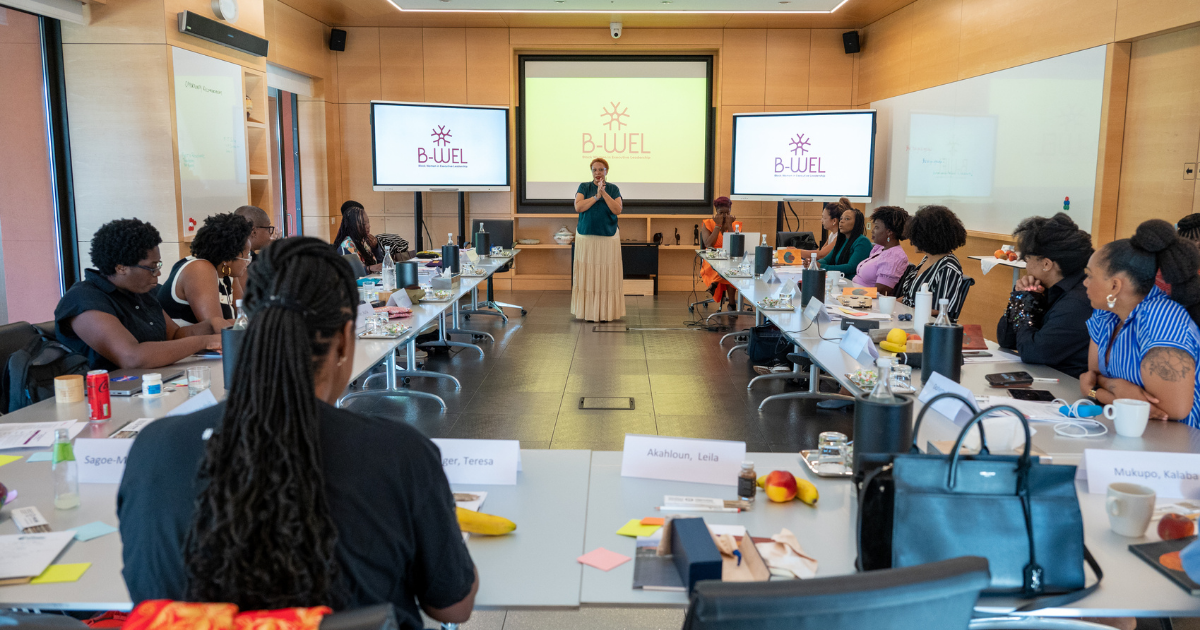

This blog post was inspired by Key takeaways from ‘Claiming Power: Global Strategies Fueling Black Women’s Leadership’ Masterclass featuring Latanya Mapp, Marcia Ashong-Sam and Jandaraci Araújo
1. Structural Barriers Demand Structural Solutions: Across Brazil, Africa, and the U.S., Black women face deeply entrenched systems of exclusion. From underrepresentation in leadership to the lingering effects of colonialism and patriarchy, real change demands systemic solutions like legal reforms, visibility campaigns, and targeted development programs.
2. Representation Is Not Enough, Support Systems Matter: Being in the room is only the first step. Black women leaders often step into roles during times of crisis and are not adequately supported to succeed. Leadership must come with institutional backing, resources, and room to lead boldly.
3. Affirmative Action Is Effective When Protected: Brazil's 30% board quota for Black and Indigenous women shows the power of policy. Affirmative action opens doors, but it must be safeguarded from political backlash and designed for long-term change.
4. Leadership Rooted in Community Is Our Superpower: Black women across the diaspora lead with care, community, and connection. This model of leadership intergenerational and collective should be recognized and resourced, not sidelined.
5. Visibility Is a Leadership Tool: Lack of visibility is a barrier. Leaders need platforms to amplify their voices and work. Personal branding, media presence, and professional profiles (like LinkedIn) are necessary for influence and credibility.
6. Executive Presence Requires Intentional Development: Many African and Afro-descendant women leaders are underrepresented not due to lack of skill, but due to how they are perceived. Executive presence like how you show up, communicate, and build credibility is critical. Training in public positioning, CV curation, and media engagement can shift how leadership potential is recognized.
7. Leadership Loneliness is Real, But It’s Addressable: Black women in leadership often experience isolation. Being one of few or the only at the decision-making table can make leadership feel lonely. Creating peer support systems, mentorship loops, and structured visibility efforts are vital for sustaining women in these roles.
8. Intersectionality Deepens the Challenge: Black women face a triple bind: exclusion due to gender, race, and in many cases, nationality or ethnicity. These layered identities create unique challenges and call for equally nuanced solutions. Leadership development must address these compounded barriers, not just one identity at a time.
9. Leadership Needs More Than Just Appointments: Appointments to leadership without support systems budget, authority, institutional buy-in sets Black women up for failure. Real empowerment includes decision-making power and the ability to lead transformation, not just ‘symbolic’ inclusion.
10. Global Rollbacks Require Global Solidarity: From the U.S. to Latin America, political shifts are leading to reduced funding and support for equity-focused initiatives. Black women must remain globally connected, sharing strategies and showing up for each other across borders to resist regression and push forward progress.
Watch the full recording on our YouTube channel for a comprehensive overview.

